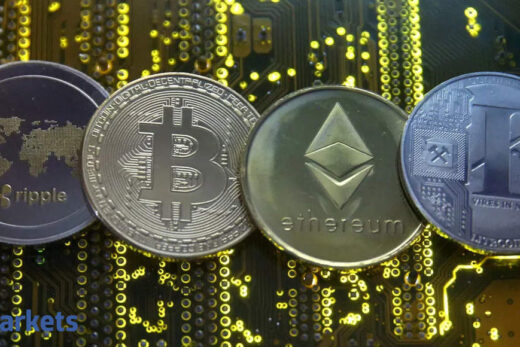As the government prepares to bring in a bill that will likely ban the use of all private cryptocurrencies, Bitcoin is looking increasingly likely to enter its second bear market in as many months, underpinning the difficulties in owning the digital asset.
Price of Bitcoin has crashed over 17 per cent from their all-time high of $58,332 in the past 24 hours amid negative comments from Tesla owner Elon Musk and US Treasury Secretary Janet Yellen. Technically, an asset is said to be in a bear market if it falls more than 20 per cent from recent high.
Yellen, on Monday, ripped into the cryptocurrency, calling it inefficient in undertaking transactions because of the amount of energy its requires to keep the system going, while Elon Musk last week tweeted that the price of Bitcoin had perhaps run up too high.
On Tuesday, India’s billionaire investor Rakesh Jhunjhunwala jumped on to the bandwagon of detractors, highlighted the deficiencies of the cryptocurrency, and called upon the regulators to ban this digital asset altogether.
“I think regulators should step in and ban Bitcoin. I think it’s speculation of the highest order. I will never buy Bitcoin,” Jhunjhunwala, often referred to as India’s own Warren Buffett, told US business network CNBC in an interview.
Wanna know what’s happening on the crypto front? Join ETMarkets Crypto Conclave on Feb 24
While the fight to save the cryptocurrency may seem a lonely one for those who are involved in the industry, they have recently garnered some support from some other Dalal Street investors.
Basant Maheshwari, a well-known portfolio manager in India, said over the next few decades “Bitcoin has the best chance to replace gold.”
“Indians can just tweet (thanks to our regulators banning it), others can participate,” he tweeted this past week.
Deepak Shenoy of Capital Mind, another well-known voice in the Indian investment community, called for substantial regulation, but rejected the idea that cryptocurrencies should banned.
With hashtags like #IndiaWantsCrypto trending on Twitter and top officials of country’s largest crypto exchanges making appearances on business news channels every other day to call for friendlier rules, the industry has managed to make its voice heard at the regulators.
The sobering truth, however, is captured succinctly by Chris Stanton of Sunrise Capital in a recent podcast: “This tool (cryptocurrencies) that was supposed to liberate the world is going to create more control. With digital currency, there is no more cash. So they (governments) can tax at every point of transaction and the whole thing gets turned on its head.”
Stanton said that the cryptocurrency whose invention was supposed to liberate the masses by decentralising currency has become an even better weapon for governments to control the financial system and “then what we have is that crypto basically becomes worthless.”
Rational thinkers in the world of finance such as Ray Dalio and Brent Johnson, while marvelling at the invention of Satoshi Nakamoto, believe that cryptocurrencies are too good for their own well-being.
Eventually, as Stanton pointed out, governments will take control of the technology to augment their own control of the monetary system. In the digital age, the new monetary system will be founded on sovereign digital currency that is then utilised by the private sector for further innovation that is just the way of the world.
While the idealists will always want technological innovations to be allowed to prosper unfettered, but in a world where governments are increasingly power-hungry, such idealism may shrink when faced with the cold reality of the global financial system.



